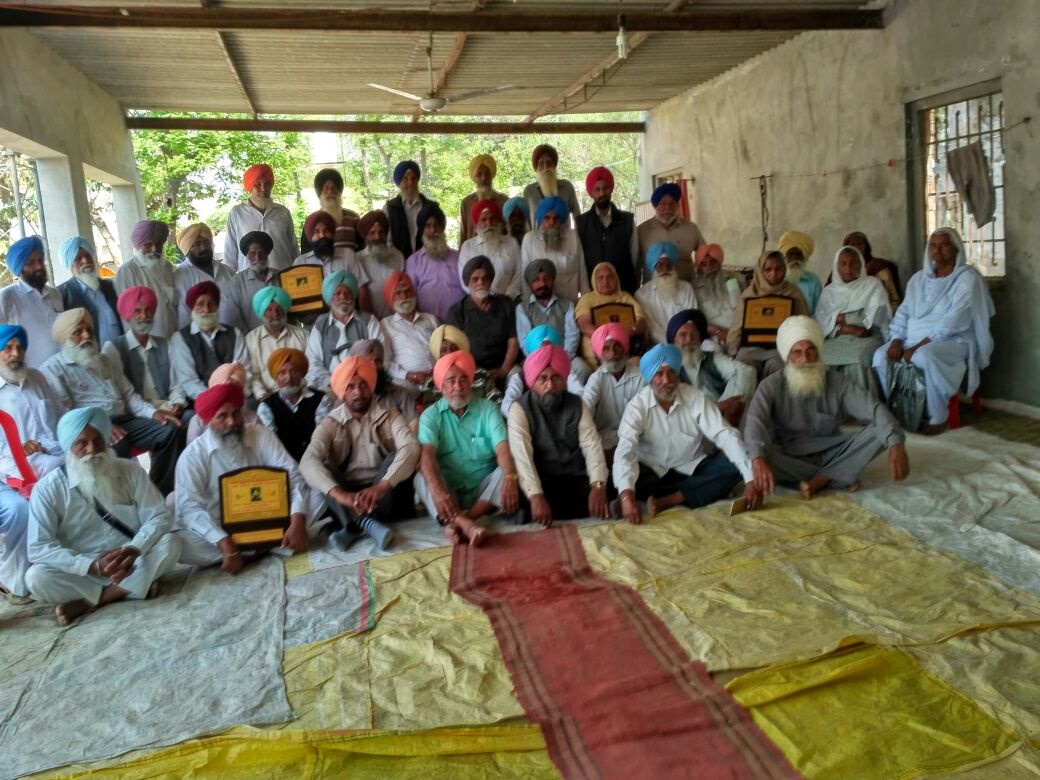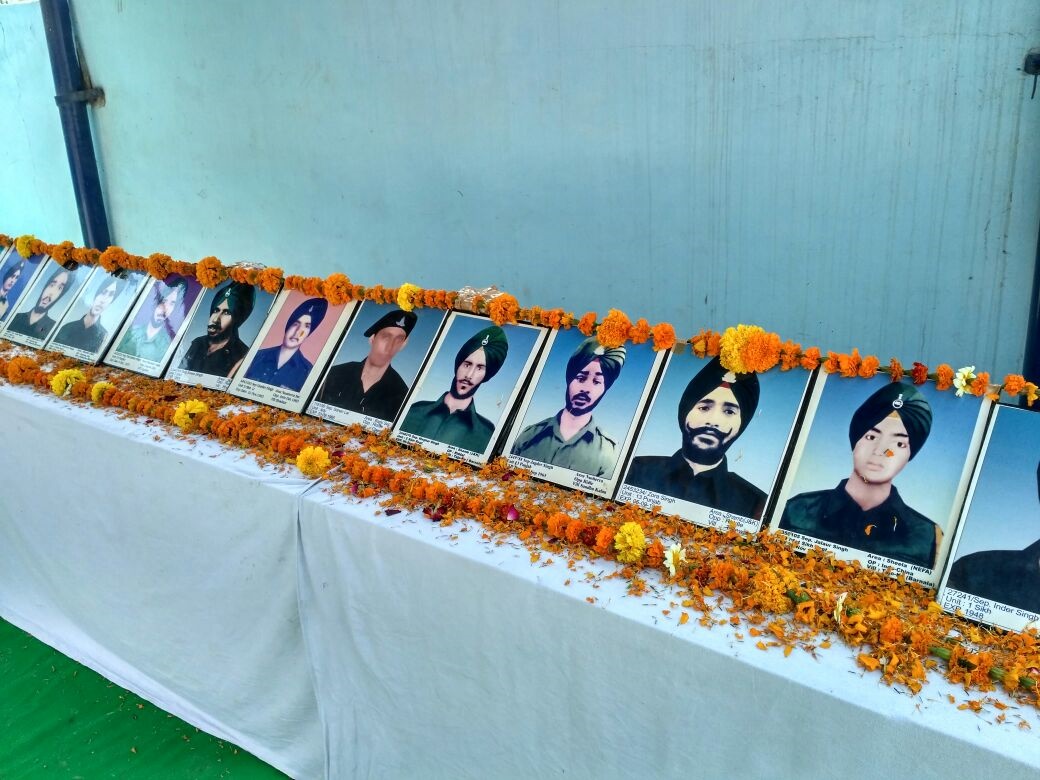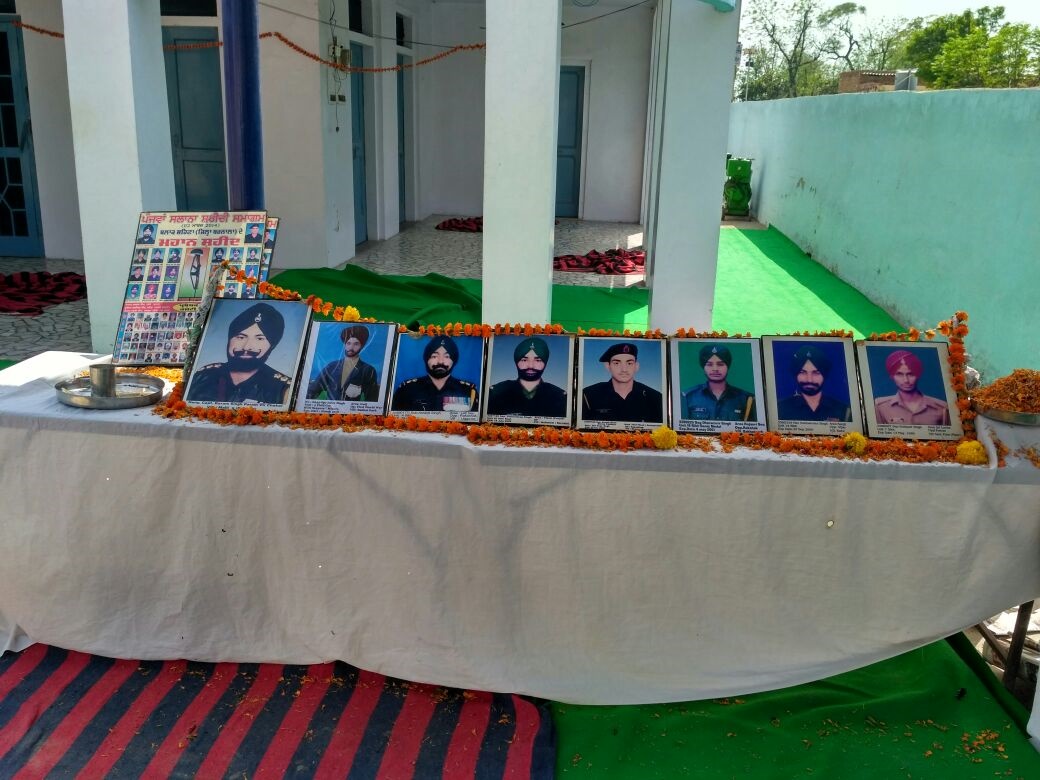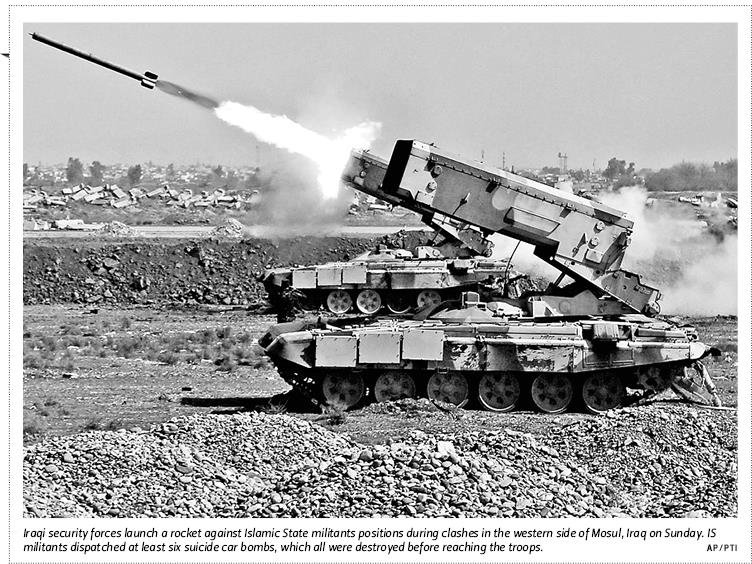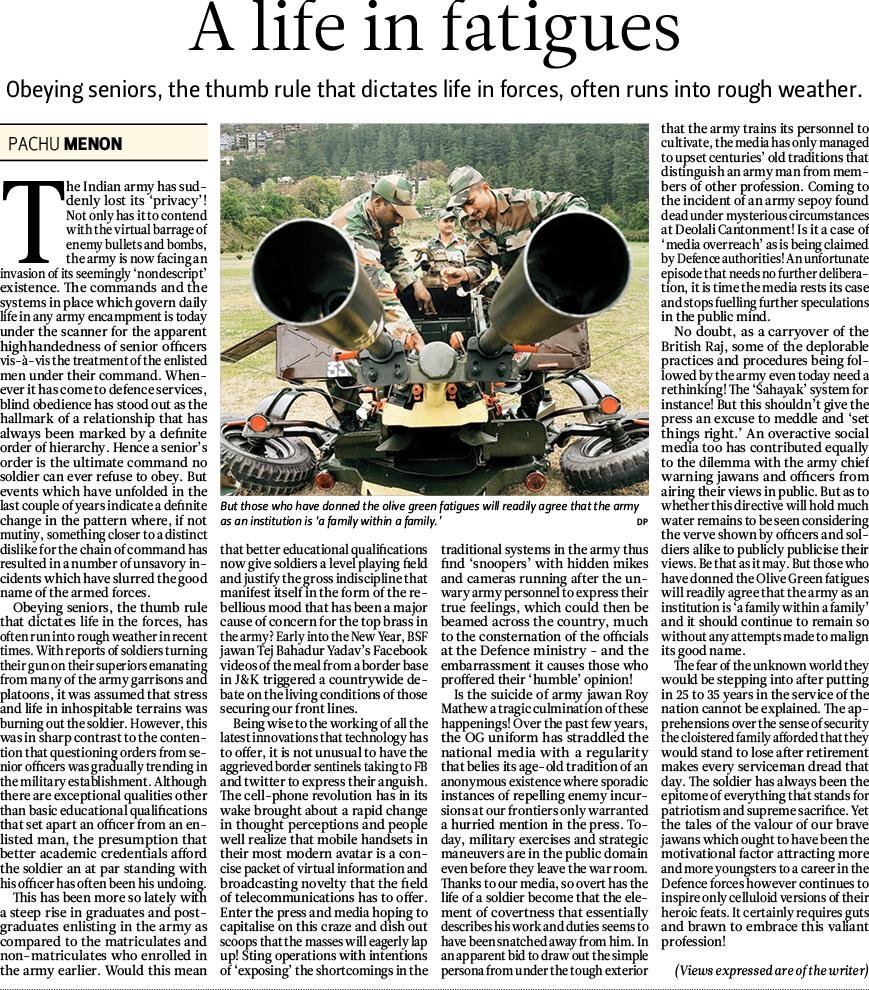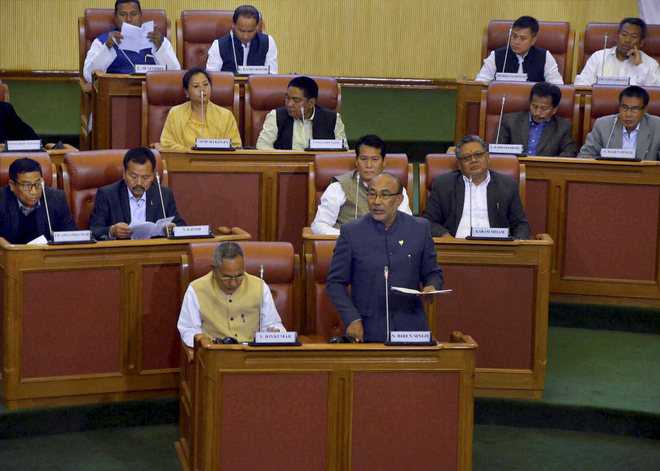 Manipur CM N Biren Singh in the Assembly on Monday. PTI
Manipur CM N Biren Singh in the Assembly on Monday. PTITribune News Service
Jalandhar, March 20
N Biren Singh, country’s first sportsperson Chief Minister, was reportedly part of the BSF soccer team that won the Durand Cup by defeating Mohan Bagan in Jalandhar.BSF DIG RS Kataria says: “I have been told by football coach Suraj Bhan Handa that Biren served here in 1981 and was an ace football player. I am also told that he was a cheerful, energetic jawan who had a short stint here. He was just 20 then.”Another senior official said Biren was 18 when he was spotted by the BSF playing a football match in Imphal in 1979. “Recruited, he served the force representing its national football team for 14 years,” he said. The BSF personnel said there was an excitement about the development at the headquarters here. “We have begun keenly following the political activities of this ex-serviceman from our force through TV and newspaper reports,” he said.
New Manipur CM has a Punjab connection
JALANDHAR: The pride is palpable among Border Security Force (BSF) personnel at its Jalandhar headquarters for the western border, and the reason is close to the eastern extreme of India. One of the footballers from the BSF team here is now the chief minister of Manipur.
Officials here are busy finding more history and photographs of N Biren Singh, BJP’s first chief minister of Manipur who took oath on March 16. “Biren was posted in BSF as a constable,” Suraj Bhan Handa, the present coach of the team, said.
As per information from the BSF, Biren Singh came to Jalandhar in 1981 after he cleared the inter-frontier level in the force. His position was ‘right fullback’ on the field. Other officers say that as part of the team in Jalandhar, he also won the Durand Cup in 1981. Biren’s batchmates now reside in various parts of the nation. They remember the CM as a “jolly” and “funloving” person who was always popular.
Pardeep Kumar, who is a retired BSF employee and is now living in Siliguri, told HT that Biren and he stayed in the same room. “We would visit markets and go to watch movies,” said Kumar.
He added, “Biren had interest in politics at that time too, but his becoming a chief minister is something we batchmates are proud of.” He recalled that Biren Singh had a “very good diet” and was fond of rice. “He often cooked for himself.”
Vishwa Miter, who at present is the coach for Jammu Sports Council, said Biren was witty too. “We always talked to him in Punjabi, and he would understand little at first. With time, he started understanding the language.” Shyam Kumar Sharma, one of the coaches of Biren who now resides in Australia, said over phone that he was a great player and a true sportsperson.

As for the old pictures, the BSF officials are planning to get them framed and send to Biren Singh, the constable who is now CM.
Declare assets in 15 days: Yogi to officials
Curbing graft: Tells them to ensure implementation of ‘sankalp patra’ | Asks DGP to improve law and order
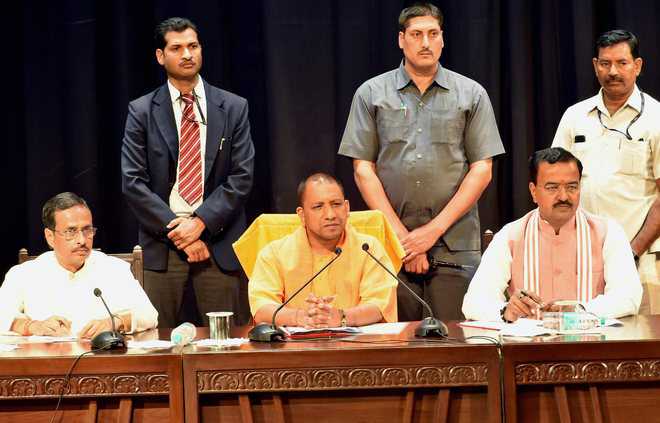 UP CM Yogi Adityanath with Deputy CMs Dinesh Sharma and Keshav Prasad Maurya at a meeting of police officers at Lok Bhawan in Lucknow on Monday. PTI
UP CM Yogi Adityanath with Deputy CMs Dinesh Sharma and Keshav Prasad Maurya at a meeting of police officers at Lok Bhawan in Lucknow on Monday. PTILucknow, March 20
Uttar Pradesh CM Yogi Adityanath today directed officials to declare their assets within 15 days, following up on a similar order to ministers after assuming office yesterday, a move aimed at uprooting corruption.Separately, Adityanath directed state DGP Javeed Ahmed to ensure that there was no laxity in improving law and order situation, hours after a BSP leader was shot dead in Allahabad.At his first interaction with senior officials in Lok Bhawan, the CM also instructed them to ensure implementation of BJP’s ‘sankalp patra’ (manifesto). “It was an introductory meeting with UP government officials. The officials were told that the sankalp patra has to be implemented,” Deputy CM Keshav Prasad Maurya said.The CM also asked officials to declare their assets — immovable and movable — within 15 days, Maurya said. The meeting was attended by nearly 65 senior officials. The officials were given a copy of the BJP’s ‘sankalp patra’ and instructions have been issued to them to prepare a roadmap for their respective departments, a senior BJP leader said.“As uprooting corruption is the main agenda of our party, the CM in his first introductory meeting with his new ministers directed them to give details of their income, movable and immovable properties, within 15 days,” cabinet minister Srikant Sharma had said yesterday.Sources said Adityanath expressed concern over the attack on the BSP leader and stressed that restoring law and order was the top priority of his government.BSP leader Mohd Shami, 60, was last night gunned down by assailants close to his residence in Mauaima police station area, 40 km from Allahabad.The UP DGP has been asked to hold video conference with the district magistrates and the superintendents of police of all the 75 districts of the state to take stock of law and order situation and other administrative issues, they said.Deputy CMs Maurya and Dinesh Sharma also met Adityanath. Maurya told reporters that the first meeting of the state Cabinet would discuss all key issues mentioned in BJP’s ‘Sankalp Patra’, which include loan waiver to farmers and ban on mechanised slaughter houses.Sharma told mediapersons that his meeting was just a courtesy call. “We will work for the welfare of the people with full vigour and ensure that the work is visible on the ground,” he said. — PTI
‘Purifying’ CM’s bungalow
- Hindu seers and priests on Monday made elaborate arrangements for sacred purifying rituals at the CM’s bungalow that will be the new home for Yogi Adityanath
- Adityanath stayed at the VVIP guest house overnight and has decided not to enter the bungalow without conducting prayers and purification rituals
- Even before dawn broke, seven priests from Gorakhpur and Allahabad trooped into the CM’s official residence to conduct prayers












